| Last visit was: 23 Apr 2024, 19:21 |
It is currently 23 Apr 2024, 19:21 |

Customized
for You
Track
Your Progress
Practice
Pays
| FROM BU Questrom Graduate Student Blog: Follow @QuestromGrad on Instagram! |
|
#questromaroundtheworld is also very good at ruins impressions. This picture came in from #mexicocity #teotihuacan . . . . . . . #questromlife #springbreak2017 #mexico #boston #bostonuniversity #questrommeansbusiness A post shared by QuestromGrad (@questromgrad) on Mar 13, 2017 at 10:49am PDT We are traveling the world. Frequently. I’m sounding the alarm, folks. We need to build the @QuestromGrad Instagram account into a social media juggernaut. I’m talking Kardashian levels of inexplicable popularity. And it starts with YOU. Yes, the person reading this. Actually, in fact, you. I made it exceptionally easy by tossing a picture up top for you to not only ogle, but to also interact with by smashing the “Follow” button on the top right of the picture. If you’re interested in the comings and goings of the Questrom Graduate community, this is the Instagram account for you. We may even throw up a cute puppy/kitten picture to pander to our fledgling audience, but that’s more of a “break in case of emergency” type of thing. *Point* –> “Follow” –> *Click* –> Thanks! |
| FROM BU Questrom Graduate Student Blog: Innovation Ecosystems: 10 Questrom MBAs + 9 Days in Israel = 1 Amazing Spring Break Elective |
 Due to its increasing popularity, the annual student-led Questrom iTrek to Israel was recently transformed into the Innovation Ecosystems Field Seminar, a 3-credit elective course with a focus on Israel as an entrepreneurial ecosystem. Dubbed “Start-up Nation,” Israel provided the perfect setting for ten first-year and second-year MBA students to learn about start-ups, their various funding sources, and the settings that allow them to grow and thrive. With visits to Israeli start-ups, venture capital firms, incubators, and educational systems in Tel Aviv and Jerusalem, we met with new and established leaders in the Israeli start-up ecosystem, learning about what sets Israel apart from other countries and leads to its high per capita rate of entrepreneurs. We visited companies such as Nano Dimensions (a leader in 3D printing technology) and GenCell (a leading provider of innovative fuel cell power backup solutions), incubators such as MassChallenge Jerusalem and Startup Nation Central, and educational systems such as Tel Aviv University and Technion Technology Transfer. In addition to the various site visits, we had the opportunity to visit the City of Jaffa, the Western Wall, the Dead Sea, Masada, and the Yad Vashem Holocaust Museum, among other sites. loading slideshow... |
| FROM BU Questrom Graduate Student Blog: From Boston to Shanghai: Clark Soucy, MBA ’18, Interns at Panda Capital |
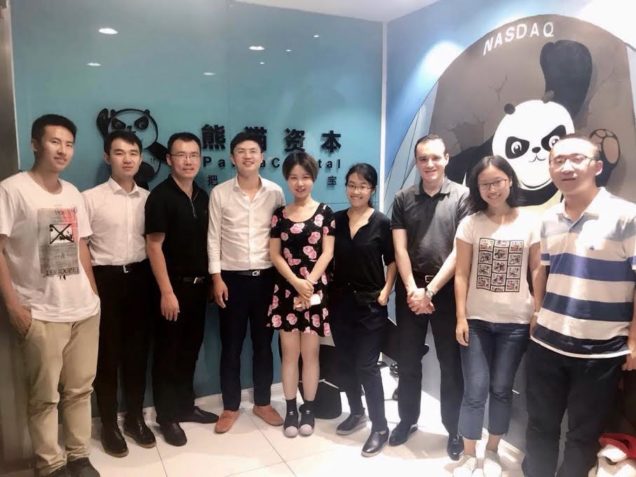 Over the summer of 2017, Clark Soucy (MBA ’18) interned in Shanghai at a Chinese Venture Capital Fund, Panda Capital. Before enrolling at Boston University, he worked in Shanghai for three years at a Chinese Airline so he was excited to return to China for the summer. This internship gave him the opportunity to engage with the rapidly growing Chinese startup ecosystem and learn about the latest trends in Chinese business. Shanghai, Beijing and many other Chinese cities are home to a rising number of startups with numerous local and overseas investment funds providing capital. The venture capital industry in China has a very similar model to that of the United States: VCs raise funds from investors which they then use to purchase equity stakes in new companies. The VC will then sell the equity holdings later to another investor or sell them during an initial public offering. Normally VC funds have a life span of 8-10 years as the funds sometimes need additional time to liquidate their holdings because some of the companies in their investment portfolio do not have an initial public offering. Panda Capital was founded in 2015 and the fund’s investment portfolio currently spans online consumer finance, peer-to-peer car rental, bike sharing, and other sectors. Clark’s responsibility as an intern was to assist the fund founders evaluate potential investment projects. In practice, this meant conducting due diligence and market research on many of the prospective businesses the fund was looking to invest in as well as creating financial models to project a range for the expected return on investment. While interning at the fund, Clark met many portfolio CEOs as well as entrepreneurs seeking funding for their new ventures. He personally tested many of the products and services offered by these companies, giving him insights into new commercial strategies and a new mindset for analyzing investment opportunities. He also used his time interning at the fund to improve his ability to use Chinese to conduct business. The fund only invests in domestic companies so all of the meetings and presentations he attended were entirely in Chinese; He also used Chinese to communicate with his colleagues and conduct research. Clark plans to return to China to work after graduation so interning for Panda Capital was excellent preparation for his post-MBA career. |
| FROM BU Questrom Graduate Student Blog: Questrom Means Teamwork |
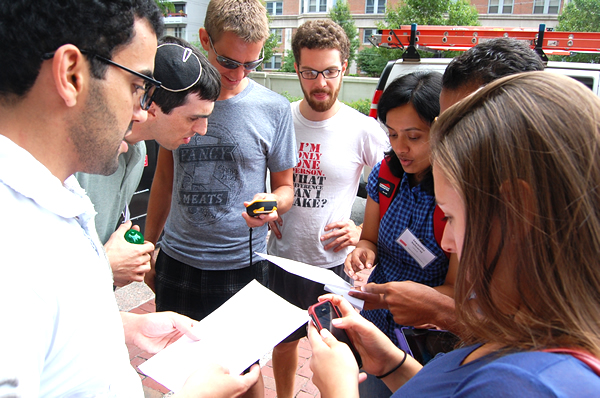 Somewhere towards the end of Mod 2, the second 7-week 3-class series in the first semester, it hits you. It’s a dizzying moment: you’re in the middle of StratSim (a week long management team simulation to create the most profitable company), you have marketing strategy and financial models racing through your brain, and bam–you’re a quarter of the way done with your Questrom MBA. By now, you have had the chance to get to know your classmates, your cohort, and your teammates and you will have learned that what they say is true: some of the best people in the world find themselves at Questrom. Teamwork is central to the Questrom experience—and not just in that slightly squishy interview answer way. Each Mod has a team capstone project that distills the concepts of the preceding 5 weeks and provides the opportunity to learn from your fellow classmates. Together, you will assess a company for takeover, lead a car company, and work with a live client to tackle a real-life problem. Outside the classroom you and your classmates will team up to lead conferences, consult with nonprofits and small businesses, and enter (and win) case competitions. Questrom brings together a unique set of backgrounds and experiences—my Mod 1 team included students with backgrounds in commercial banking, nonprofit management, disaster recovery, and supply chain—and one of the greatest benefits is the unique perspective each brings to your common project. One person’s consulting background may help you understand that tricky operations concept; someone else’s work in engineering may open up a whole new perspective on a marketing project. It’s a great place to learn together, work together, and build those skills that employers say are the number one reason they prefer Questrom Grads! Learn more about our team-based approach here. 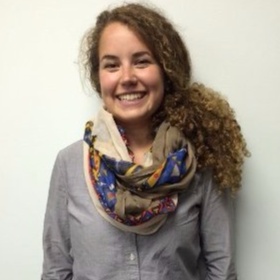 Emily Racklef is a 1st year Social Impact MBA + MSDi Candidate at the Questrom School of Business |
| FROM BU Questrom Graduate Student Blog: First Year Life at Questrom |
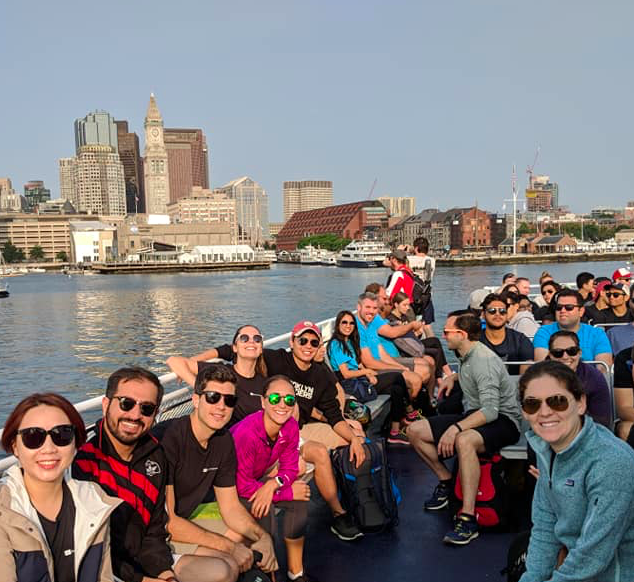 Thompson Island Trip, August 2018 Your 1st year as a full-time Questrom MBA student is sure to bring lots of choices– from clubs, to spring break trips, to electives, you’ll have many opportunities to carve your own path. Coming back to grad school full-time is a major adjustment that provides both rewards and challenges. Launch Launch is Questrom’s 2-week orientation that gets your ready for a successful first year of your MBA! It is an incredibly exhausting but fun time that introduces you to all that Questrom has to offer. From a student BBQ to evenings at Cornwalls (Questrom’s local bar of choice), and from welcoming chats with professors and administrators to bonding with your new classmates, Launch really makes you feel a part of the community. You’ll have the opportunity to learn about clubs, campus safety, health insurance, and more. All these experiences mean that you’ll feel comfortable and ready to go once classes start. Academics A distinctive feature of first year life at Questrom is that all classes run on the quarter system (each quarter is called a “Mod”). The first three mods are comprised of core classes that you take alongside your cohort. Together, you will journey through quant-heavy Mod 1, work together on cases in Mod 2, and launch into your first live consulting project in Mod 3. Each class meets twice a week for 2 hours and 45 minutes. Professors and TAs typically hold weekly office hours, as well as optional review sessions. At the end of each mod, there is a cumulative project that combines all your learnings from the three classes you’ve just completed, which you will work with a team of 5-6 students. In Mod 1, you’ll act as a private equity firm looking to take over an underperforming company. In Mod 2, the whole class competes in a “Strategy Simulation”– each team is a car company pitting themself against the rest of companies (teams) to gain market share and stock price. And finally in Mod 3, you’ll have the opportunity to conduct a consulting project with a real client! These projects challenge you to apply your skills. They really help solidify your learnings and teach you how to work successfully on teams. Teaming Questrom is well known for our strong emphasis on teaming. Each Mod project is conducted by a team of students in your cohort. Our teaming class begins during Launch, and meets a handful of times throughout the first year to teach you about different challenges your team is likely facing at that point in time (communication, embracing diversity, decision making). We take a hands on approach: we visited Thompson Island in the Boston harbor for a day of adventure education, took a trip to the Museum of Fine Arts, and went on a scavenger hunt throughout Boston. A big focus of these teams is learning how to reflect on your contributions to a team and how to support the professional development of your teammates. This requires compassion, self awareness, and flexibility, as we all learn to be strong teammates and leaders together. We are encouraged to treat these teams as real professional teams. We take time for team bonding (board game nights, team lunch, dinner at someone’s apartment). Openly talking through disagreements is encouraged. One of the best parts of teaming is the opportunity to make friends, especially with students you may not have met otherwise. Community One of the highlights of the Questrom experience is the community we build. Our classmates are incredibly genuine, hard working, supportive and fun. This is definitely somewhere you can come to make lifelong friends. Because the program is relatively small, it’s possible to get to know most of your peers at least a little. This creates an environment that goes beyond making a few close friends, but where everyone really supports everyone. A few examples of this community are:
We hope to see you on campus this Fall! If you have any questions about student life at Questrom, please email connect@bu.edu to set up time to speak with a student ambassador one-on-one. |
| FROM BU Questrom Graduate Student Blog: Moving to Boston! |
Students move to Boston for their MBA at Questrom from across many US cities, and countries worldwide. Concerns of finding housing, surviving Boston winters, and making friends are often top of mind! We’ve interviewed two students new to Boston to share their experiences with you.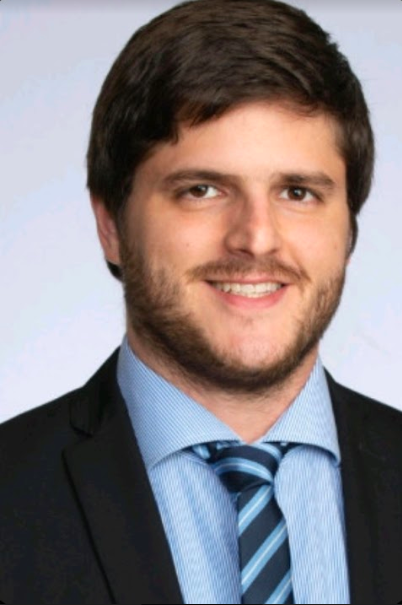 Facundo Goyeneche 1st year MBA Hometown: Motevideo, Uruguay 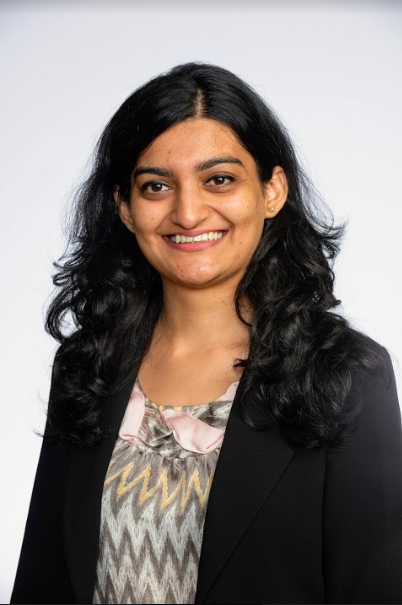 Minal Sariya 1st year MBA + MSDi Hometown: Indore, India Where are you from and how is Boston different? Facundo: I moved to Boston from Montevideo, Uruguay, a city that’s bigger than Boston. The weather there is similar to Boston in Spring, Fall and Summer, but it’s not that cold in Winter. But I don’t mind the Winter in Boston very much. In terms of transportation, Montevideo doesn’t have trains. Even though the T doesn’t always work perfectly, it’s nice to have. Boston is also a really safe city– it’s not common to be mugged or see crimes, and I feel comfortable walking around here. Amazon packages are even left on the doorstep. I can’t imagine that in Uruguay! Minal: I’m from a small city in India (Indore, India) and I have also lived in Bombay for majority of my adult life. Boston is the perfect mix of a small town and a metro. It is a very walkable city and really pretty, especially during the snow! Where do you live and how do you get to school? How did you find housing? Facundo: I live in Cambridge close to Harvard, and I bike to school everyday. It’s really easy to bike because there is a bike lane all along the Charles River, and it takes me about 10 minutes. When I don’t bike, I take the bus to school instead which takes about 30 minutes. Minal: I live in Brighton, which is about 30 minutes from school. I take the B line to school everyday. It’s convenient because the T is right across from my apartment, but it can be late or break down sometimes. Living close to school is great because you’ll be near classmates and the commute won’t be too bad. I actually live with classmates. A few other student who were from India connected in the https://gmatclub.com/chat group and we got an apartment together. I started my apartment search with Zillow, Apartments.com and Craigslist when I was back home, around April. I finally found a broker through Craigslist and found my apartment in July. Apartments can go quickly, so it’s important to start early! Most leases start September 1 so everyone is searching at the same time. You can also check Facebook marketplace if you’d like to sublet a room for the summer before committing to a lease. Did you have any concerns about moving to Boston? Minal: My biggest moving here was about the weather because I heard it got really cold for six months and can be depressing. It is cold here most of the time, but if you have a good support system with your new friends, and the right clothes, it’s not too much to worry about. I spoke to second years about the weather and visited stores which helped me get an idea of what winter gear I needed. Have you had a chance to travel outside the city? Where? Facundo: In the Fall around Halloween, I went to Salem and Gloucester for a day trip when a friend was visiting to see New England in the Fall. I also went to New York and Miami for weekend trips and over winter break, I went on a ski trip to New Hampshire. It’s been great to have the chance to travel around the US during some of my spare time. 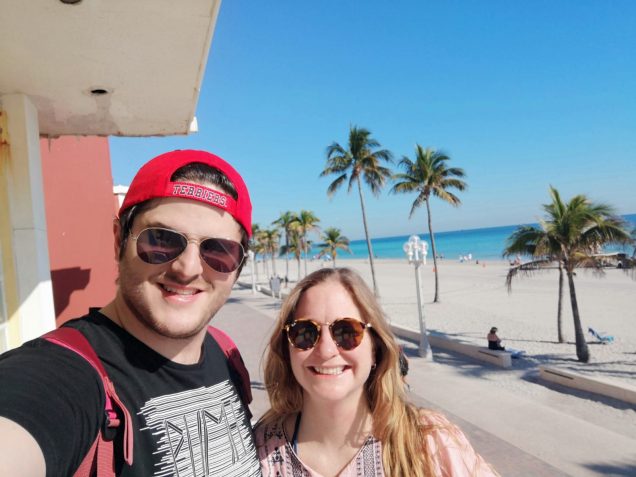 Facundo in Miami Minal: I’ve also had a chance to travel a bit. For winter break, I went on a road trip to Florida with a friend from India. We went to the Southern most point of the US and I even went skydiving spontaneously! It’s important to get out of town in the Winter, I had initially decided to stick around Boston for Spring Break because of interviews but after the intense capstone project in Mod 3, I decided to take a much deserved break and went for a weekend trip to New Orleans.  Minal Skydiving 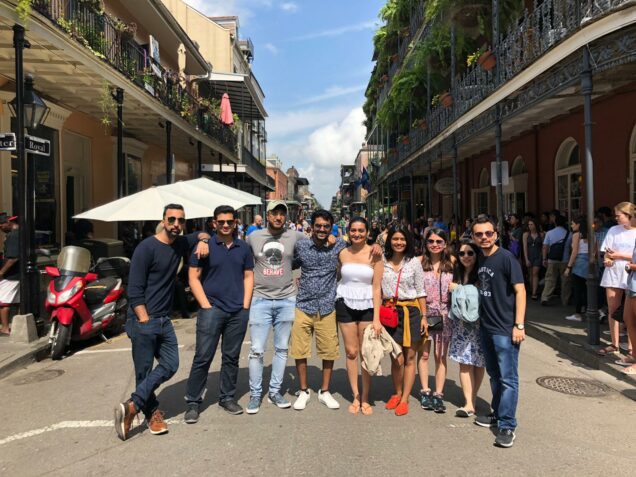 Minal in New Orleans What are your favorite thing to do for fun in the city? Facundo: I love nature so I like to visit Middlesex Fells Reservation, a huge park with a zoo just outside the city. I also love the Fenway area because I like the Red Sox– I didn’t know anything about baseball before coming here, but I’m a huge sports fan so I really got into the sports when I arrived.  Facundo at the Red Sox Parade What surprised you most about Boston? Minal: People in Boston are crazy drivers, and j-walking is very common. Since it’s a college town, you see kids and millenials all around. There’s something happening at all times of day. Another great thing is that being an education hub with universities nearby, there are lots of events and it’s easy to network. This is a big advantage of being in Boston! Facundo: When I moved here, I didn’t know what it would be like making new friends. Launch was a great way to meet people. Even though it was long I had the opportunity to get to know the people in class. All the friends I’ve made have been through Questrom, and I haven’t needed to make friends from outside school. 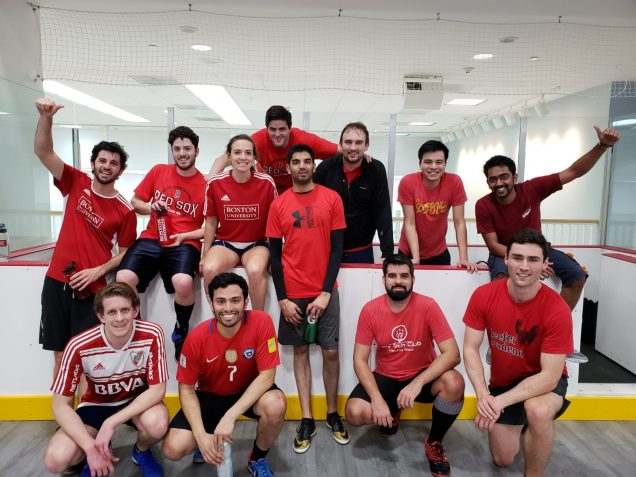 Facundo with Questrom’s intramural soccer team. It also took some time to adjust to American culture– everything related to food surprised me. People have snacks throughout the day, but at home we have 4 meals every day (dinner at 10 or 11). Here, we have dinner when the sun is shining, which was hard to get used to! Something I didn’t know about Boston before moving here is “Allston Christmas.” Allston is a neighborhood with lots of students, and most of them move in and out on September 1st. On this day, lots of people give away furniture on the street. Almost all the furniture in my apartment is from the street, so I didn’t spend too much money on furniture. I did buy a new bed to avoid bed bugs, but everything else is great! Is there anything else you think someone from your hometown/country would like to know? Minal: It’s easy to get around in Boston, by foot, train, or bus. You definitely don’t want a car– parking is expensive here. Facundo: Boston is a pretty expensive city– I try to save money where I can, like by biking to school, and I think twice before spending money when I go out. Even though Boston can be expensive, part of this is just the adjustment to not having a salary while in school. We hope Minal and Facundo have convinced you that you, too, can survive Boston Winters and the other challenges of making this big move! If you have any questions about your move to Boston, please email connect@bu.edu. |
| FROM BU Questrom Graduate Student Blog: Finding Balance During My MBA |
|
I had been out of school for about seven years before I started my MBA, so I was nervous about work/life balance during the program. How would I handle group projects while also making sure I had time to see my husband? Would I end up living in the library? Would I have time to join any clubs? What was this Thirsty Thursday that all the second years kept talking about? When my Mod 1 team met for the first time, we all had multiple pieces of our lives we were trying to juggle – school, moving, and wedding planning, to name a few. Seeing that everyone was dealing with the same major transition helped me feel more confident in setting my own priorities. Mod 2 arrived faster than I expected, and I started to find my routines. I had my favorite study spot in the library and carved out time to make dinner at home even if I had to get back to studying right after. Before I knew it we were already in Mod 3. With new case-heavy classes, the internship search in high gear, and an additional client project for a Global Field Seminar I was taking over spring break, I started to feel a bit overwhelmed. There were so many deadlines, projects, events, and team meetings – seriously, so many team meetings. At the same time, I marveled at everything I was getting to do. At the end of each day, I hadn’t just gone to class. I’d brainstormed strategies for our pharmaceutical client. I’d researched business models for our microgrid tech client in South Africa. I’d put together a panel of alumni for a club event. I’d interviewed for a summer internship. I’d had classmates coach me on how improve a presentation. I’d gone to a concert at the Brighton Music Hall or tried out a new restaurant on Beacon Ave. I could see how much I was experiencing and learning each day, so even when I was feeling tired at 11:00 PM on a Tuesday night or in hour 3 of a team project meeting, I was excited to get up the next day. Even while juggling deadlines, I carved out time for non-Questrom activities. I live fifteen minutes from the Coolidge Corner library, and so always have a pile of novels to give me a break from thinking about strategic positioning. I know that I will feel better about Friday nights that I spend with friends instead of in front of my laptop – and I won’t be productive then, anyway. Every Saturday morning, I make myself a pot of coffee and catch up on favorite TV shows. Designating times where I don’t work helps me be more focused when I am working and lets me fully relax when I’m not. Balance for me is less of a day-to-day goal and more of a holistic one. Instead of thinking in terms of a to-do list, I try to think in terms of overarching goals. Am I learning? Am I seeing myself grow? Am I spending quality time with people I care about? If I’m feeling out of sync, what’s causing it and how can I fix it? Taking the time to appreciate all that I’m doing – both at Questrom and outside – helps me keep perspective and reminds me to build in downtime where I can. The point of the MBA for me isn’t about the next graded assignment, it’s about the full experience of these two years at Questrom and in Boston. I’ll raise my glass to that at the next Thirsty Thursday. 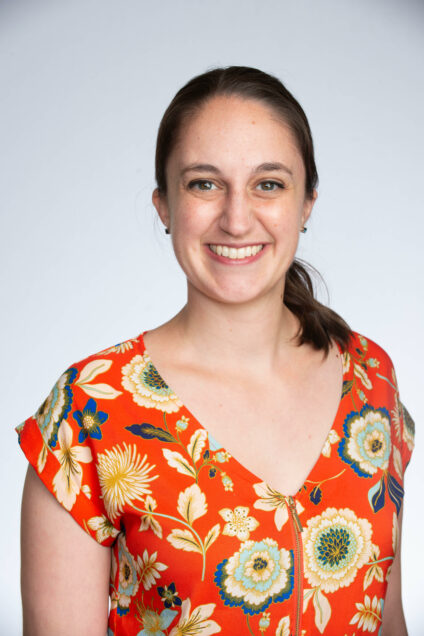 Laura Chanoux is a First-Year Social Impact MBA Candidate at the Questrom School of Business |
| FROM BU Questrom Graduate Student Blog: Dual Degree Programs at Questrom |
|
Are you considering a dual degree program at Questrom? Many of our students do! Learn more about the experience from three students in different dual degree programs. Masters in Digital Innovation (MSDi) Emily Rackleff Social Impact MBA + MSDi 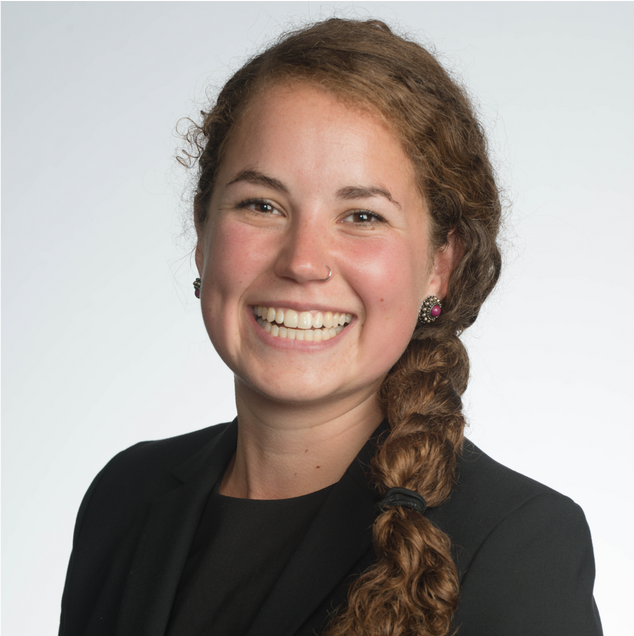 Highlights: As someone coming from a nontechnical background, the MSDi degree has added credibility and expertise to my career story and helped me pivot into my target role doing technology consulting for nonprofits. Employers and people outside of Questrom are curious about the MSDi and it has sparked conversations and opened doors I might not otherwise have had. Graduating with the MSDi, I feel much more equipped to manage the technical aspects of a client engagement and know that I can lead a project to make sure both business and implementation needs are fully met. Challenges: There is so much to learn in such a short period! I wish there had been more time to absorb some of the key information, and there are concepts, like user experience, that I wish we had been able to go deeper on. That said, I do appreciate that I will graduate in two years with two degrees. Tips for future students: While it is not a requirement, I wish I had done some more prep work to learn the R and python languages. The program isn’t designed to make you fluent in any one language–you’re not going to graduate and become a software engineer–but I do think I would have been able to engage more fully with some of the exercises and projects if I had a basic working knowledge in advance. Masters in Public Health (MPH) Jillian Yee Health Sector Management MBA + MPH 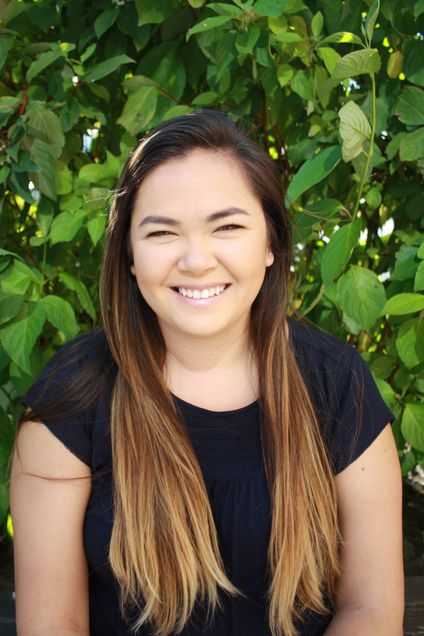 Highlights: For someone interested in the healthcare space, this is such an interesting and applicable combination of degrees. I have really enjoyed my courses for both programs- they often approach the topic of health and care in different perspectives from one another as we dive into questions concerning the cost, quality, and access of care delivery. The way the program is structured, you have a lot of flexibility with your concentration for the MPH. My class of dual MBA/MPH’ers has nine second year students and we span across five different concentrations depending on our individual interests. Aside from the course content, I also love being part of so many different communities. In addition to my dual community, I also have the HSM community, the broader MBA community and the MPH community as well. We have so many amazing people here at Questrom, it has been a fantastic experience getting to know them in so many different capacities. Challenges: It’s a lot of content to condense into two years. The advisors to the two programs have worked very hard to try to cut overlap between the core classes to give us as much freedom with our classes as possible. That being said, you do have to be fairly selective and definitely plan ahead with your course schedule because there will be a lot that you will want to fit in, and unfortunately probably more than you will have time for. Tips for future students/something you wish you knew: Communication between the two components of the degrees can be a bit of a struggle sometimes. The dual MBA/MPH class a year above mine was wonderful and took a lot of time to help us navigate the transition- from classes and instructors to good places to study on the Medical Campus. As the current second years, my class has tried to pass on the same legacy to the current first year duals. The second years when you start will be your greatest resource; get to know them and ask them as many questions as you can think of. Masters in International Relations Aseem Kulkarni Social Impact MBA + MA in International Relations  Highlights: I was extremely enthusiastic about taking up this opportunity offered by Questrom and the Pardee School of Global Affairs, since I wanted the ability to fuse my experience and aspirations to in business and moving into the private sector with my interest in international policy. Some of the highlights of my degree include being able to attend engaging panels/conferences between both schools including but not limited to the Biz Tech Conference at Questrom and Beyond the Headlines panel events at Pardee (on topics such as Brexit and unrest in Venezuela). Another highlight includes being able to apply what I have learned in Questrom to my classes at Pardee, and even vice-versa, including what I learned and experienced during my Questrom Social Impact spring break South Africa seminar, to my classes on intelligence and global development at Pardee. Lastly, I have really enjoyed getting to know and make friends with two different but equally intelligent and interesting communities. Challenges: The biggest challenge is that registration for classes always seems so much more difficult because there are so many classes I am interested in taking, but there is simply not enough time in the day. Additionally, scheduling can be an issue. There tend to be several events that will conflict with one another between Questrom and Pardee. Even though I have enjoyed being part of both the Questrom and Pardee communities, in my entire class I am the only one pursuing the dual degree. Unlike other programs such as the MBA/MSDI or the MBA/MPH, my specific program only has 1-2 people a year. It can be difficult when studying and simply not knowing anyone in the same boat. Tips for future students/something you wish you knew: First, be patient. Although there may be administrative hassles along the way (like scheduling and registering for classes), remember that you will be receiving a unique degree and it will definitely make you standout with recruiters. Second, stay focused. An integral part of the International Relations portion of the dual degree requires that you write a capstone paper (essentially a masters thesis). This takes time and quite a bit of detailed research, and you will be defending it against three professors. Again, don’t forget about the degree you’ll be receiving in the end. And third, don’t be afraid to talk with others. This can include professors, the Grad Center, etc. They are there to support your academic journey and guide you in the next steps of your career. It has been such a help to get to know many of them on both a personal and professional level. |
| FROM BU Questrom Graduate Student Blog: Experiential Learning Opportunities |
|
Experiential learning is one of the greatest parts about the Questrom experience! Throughout your two years there are a multitude of ways to get involved where you can apply your business knowledge and flex your management skills. Opportunities are available both formally, in classes and conferences, or more informally through global consulting projects over Spring Break. I’ve taken part in experiential learning through four different outlets: 1) class projects, 2) BU Global Ventures Consulting Club, 3) Health & Life Sciences Conference, and 4) case competitions. 1. Class Projects There are many opportunities through class to work with companies! In Health Sector Marketing, we worked with a company to analyze their marketing plan and then delivered recommendations to improve it. My team worked with a local biotech company from the Harvard Innovation incubator that is addressing drug adherence issues. We met with the Business Development lead and his team, and came up with a marketing roadmap for their new product launch. As a team we presented to the board and were proud to hear that most of our recommendations were put into practice! 2. BU Global Ventures Consulting Club BU Global Ventures is a student led club that runs a Spring Break trip to Guatemala (first year) or Peru (second year), where you consult with local entrepreneurs while also enjoying some fun travel with classmates. This year for spring break I went to Peru!–what an adventure!! After exploring Lima we each met with our local company. I presented (in Spanish– big win for all those high school Spanish classes!) and we delivered a Powerpoint deck on branding best-practices for the whole entrepreneurial community, as well as specific recommendations for our local company. The audience was so engaging and both excited and grateful for our help! The trip is very rewarding. It’s wonderful to know I’ve put into practice the Questrom creed of “creating value for the world”, and it was encouraging to witness the courage and zeal of these local entrepreneurs leading their enterprises in challenging economic situations. 3. Health & Life Sciences Conference Conferences are another fantastic way to exercise your leadership and management skills while networking with local companies and business leaders. The Health & Life Sciences Conference is Questrom’s largest student-led conference and attracts not only Boston-based thought leaders but also some of the nation’s biggest names. As a first year, I applied and was selected, to be the Assistant for Digital Media & Content. As a second year, I was the Director of Digital Media & Content. It was an incredible experience to work cross-functionally behind the scenes with classmates, through all the logistics and organization, and get a sense of what it takes to put on such an event. In my opinion, the best part was getting to see it all come together on conference day! It was a huge success, with over 200+ attendees from across Boston! 4. Case Competitions Case competitions are a unique business school opportunity to compete, work in teams and be analytical! You’re given a case by a company or organization and have a given amount of time (sometimes it’s 2 months, a week, or even just 24 hours!) to analyze a case, create recommendations and give a presentation. I attended the Ohio State University case competition with two classmates, where we were tasked with expanding their diabetes program and making it a center of national excellence. We flew to Columbus, Ohio where we got to network and compete with schools from all over the country! The chance to apply my course skills to a real-world problem was thrilling, and taught me not only to think strategically but also critically analyze the viability of a solution. It’s fun to shoot for the moon, but you must also consider if you can and should actually do it? The whole experience was a fantastic way to work with friends, apply business logic, and refine my presentation skills, all while proudly representing Questrom at a national forum! All these amazing experiences have strengthened my business acumen. However, there are even more ways to partake in experiential learning opportunities at Questrom. Link Day (a day of consulting for local non-profits), professor initiated projects (some professors have launched ad hoc trips/projects through personal corporate contacts), case writing (BU professors collaborate with students to write new case materials), MassChallenge (a start-up incubator where students are paired with a company), and Global Immersion Trips (school led treks over breaks to various countries to meet and work with international firms) are a few that stand out. The possibilities really are endless!! 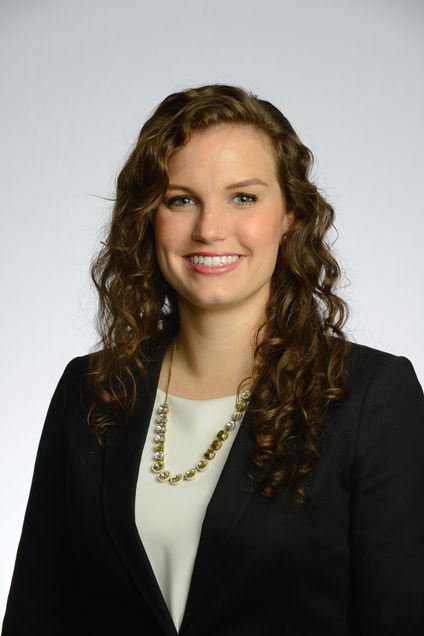 Natassya Bedos is a Second Year Health Sector MBA student at the Questrom School of Business |
| FROM BU Questrom Graduate Student Blog: Moving to Boston |
|
Many of the Questrom MBA students move from many cities in the United States and abroad. This article will provide some insight on the common concerns MBA students have when moving to Boston and some advice to keep in mind when making the big move! Common concerns from the MBA students who are new to Boston are related to housing, winter weather, and adjusting to the city.
Most of the Questrom MBA students live off campus. There are some Boston University rental options through Boston University Real Estate but there are few and off campus options tend to be more affordable. Keep in mind, most leases start on September 1st. The important thing for students when looking for housing is the commute. Most MBA students recommend living near the B, C or D lines since they stop at Kenmore Station, which is a 4-minute walk from the Questrom School of Business. The neighborhoods students recommend looking at when searching are Brookline, Allston, Kenmore/Fenway, and Back Bay. For more information on Boston University Real Estate, click here. [*]Winter weather[/list] The winter months are rough for many students who are not used to the cold weather, but with a good winter coat and a pair of snow boots you will be braving the cold like any Bostonian! Speaking to your fellow classmates and second years on what is the best gear to buy for the winter months is always a great way to get prepared. It is also important to have a good support system that will get you through the cold months. Here is a list of the winter essentials to brave a Boston winter:
[*]Adjusting to the city[/list] The city of Boston has many attractions that make it desirable for students and tourists to come and enjoy all it has to offer. From its many museums to its larger than life sports scene, Boston has many cultural activities to emerge yourself in. However, since Boston is the center of academia there is a big student population and therefore great diversity. MBA students shared some of their favorite things to do in the city:
|
| FROM BU Questrom Graduate Student Blog: Balancing the MBA Life |
|
I think writing about work-life balance in a business school blog can feel like a little bit of an oxymoron: MBA’s are ambitious, motivated, driven, and balance can be challenging to strike. It can be particularly hard when trying to cram academics, networking, internship search, new friends, and a whole bunch of extracurricular activities into 24 hours. Oh, and I suppose one should also try and get some sleep occasionally. I think what I learned quickly in my first year was that my time was the most limited and precious resource I had, and I’d be smart to put it towards the things that mattered most. This for me meant learning to prioritize. There are always several interesting things going on at the same time: a networking event, an employer spotlight, a TA session, friends meeting up for drinks. Having to choose just one is challenging, but with so many asks on my time, I often have to ask myself, whether my choice would help me grow, make me happier, align with my values, or help me reach my goals. The answer isn’t always the same: sometimes it is foregoing the party to study for an exam, and sometimes it is going out to celebrate and relishing the accomplishment of an aced interview. That’s why this balance thing is tricky. Another thing on my journey towards balance has been making self-care a regular part of my life because I need to show up as my best self for my teams and to stay sharp to tackle challenging projects. What this looks like for me is always aiming for 8 hours of sleep. Sometimes that means finishing homework assignments at 5 am. But I know I’d be more productive then than at the end of an already long, demanding day. Self-care for me also means regular exercise: I know I have more energy if I start my day with a run. I did Crossfit during my first year and have taken up aerial hoop in second year. I think sleep and exercise are also what has kept me healthier both physically and mentally through my MBA career. I think recognizing my limitations and setting realistic expectations have also been critical in working to achieve balance in in my life. This applies to anything, from committing to realistic timelines when I promise to do research on a project, not taking on a club task that I don’t think I can complete on time, and making sure my partner knows whether I am able to pick up groceries on my way home. This is probably the most challenging part of creating balance for me, as my natural propensity is to say yes to everything. But I’ve learned that I’d rather under promise and overdeliver than to have to choose between sleep and integrity of delivering on a word given thoughtlessly. In short, creating a work-life balance as an MBA student is challenging. But balance is, by definition, the counteraction of weights or tensions, so it’s only natural that you get particularly good at finding it when you feel pulled in different directions. Nari Malkhasyan is a 2nd year Social Impact MBA student with a background in the apparel industry, and a passion for the outdoors, aerial circus, kombucha, and her 2 cats. She's trying to hike her way through the Presidential Range in NH before she moves to the West Coast after graduation. |
| FROM BU Questrom Graduate Student Blog: Making Your MBA Electives Work for You |
|
Author: Shreya Iyer Congrats—you’ve made it through your Orientation and LAUNCH week. Now, you are sitting in your Mod 1 classes juggling between Economics, Accounting, and Statistics, and may be wondering, ‘what have I gotten myself into?’. As someone who was going through this process not too long ago, I can empathize with the anxiety of picking the right concentration and electives. One of the biggest learnings entering into an MBA program is to actually un-learn some best practices from your Undergraduate years. This is especially true as you’re picking your Mod/Elective classes. At Questrom, full-time first year is structured in four modules (Mods), with each lasting roughly seven weeks. Mod 1 focuses on building a strong foundation and understanding core business of Economics, Accounting, and Statistics. Mod 2 introduces you to business functions—marketing, finance, and operations. Module 3 takes a broader perspective, with courses in Strategy, Organizational Leadership, and Information Technology. All Mods have hands-on experiential learning components to them. Finally, in Mod 4, you can delve into your interests and choose courses that fit your concentration and career goals. I took Health Sector Issues and Opportunities, Analytics for Managers, and a Global Immersion Trip (Israel) as my Mod 4 electives. Your MBA elective courses are designed and built on the learnings established from your Mod courses. Electives are meant to serve your needs—giving you complete freedom to take an easy or challenging course depending on your goals. They even allow you to explore a subject area you’re curious about, because, why not! Here are some tips to help you think through your electives: 1. Take a global immersion course: I highly recommend taking a global immersion trip if it fits your needs and schedule. These are 3-credit courses that count towards the Mod 4 or second year schedule. I went on the Israel trip because I was interested in learning about the innovation ecosystem and global entrepreneurship. Because of the format of these courses (1 week of travel + few weekend classes), doing an immersion course allowed me to have a lighter workload for Mod 4—which is especially helpful if you are internship/job searching in the Spring. 2. Take classes from other schools: Questrom offers some amazing courses; however, if you find a course offered at another school within Boston University (say, within the School of Engineering or Communications, etc), you may be eligible to take that course and count it towards your Questrom credits.Talk to your academic advisor for more information on this. 3. Take classes that challenge you: Business School is the perfect time to get out of your comfort zone and dabble in unique subjects that pique your interest. For example, I took Corporate Finance even though I had very limited knowledge in that subject. I spoke with the professor beforehand about my limited exposure to Finance, and he was very accommodating. Remember, this is your opportunity to stretch your learning, so spread wide! 4. Take advantage of the add/drop period: the first week of classes is your chance to evaluate the course, professor, and topics being covered—take advantage of this time. Try to sit in on courses you are interested in and assess whether the course load and curriculum is conducive to your needs. 5. Take intensives: intensives are usually a week-long course offered during the beginning of Fall or Spring semester. Questrom also offers 1.5 credit Saturday courses. You can free up your core semester by finishing 3-credits in the beginning. Bonus: as an HSM-student, I would highly recommend connecting with Ned Rimer to discuss which courses may be right for your career interests. Personally, I have taken Drugs, Devices and Diagnostics (Triple D), Health Economics, and Health Innovation--highly recommend these courses. Good luck! Shreya Iyer is an MBA & HSM Candidate 2020. She is the president of the Marketing Club at Questrom. Shreya will be joining the pharmaceutical/bio-tech industry post-graduation. |
| FROM BU Questrom Graduate Student Blog: Balancing the MBA Life |
|
I think writing about work-life balance in a business school blog can feel like a little bit of an oxymoron: MBA’s are ambitious, motivated, driven, and balance can be challenging to strike. It can be particularly hard when trying to cram academics, networking, internship search, new friends, and a whole bunch of extracurricular activities into 24 hours. Oh, and I suppose one should also try and get some sleep occasionally. I think what I learned quickly in my first year was that my time was the most limited and precious resource I had, and I’d be smart to put it towards the things that mattered most. This for me meant learning to prioritize. There are always several interesting things going on at the same time: a networking event, an employer spotlight, a TA session, friends meeting up for drinks. Having to choose just one is challenging, but with so many asks on my time, I often have to ask myself, whether my choice would help me grow, make me happier, align with my values, or help me reach my goals. The answer isn’t always the same: sometimes it is foregoing the party to study for an exam, and sometimes it is going out to celebrate and relishing the accomplishment of an aced interview. That’s why this balance thing is tricky. Another thing on my journey towards balance has been making self-care a regular part of my life because I need to show up as my best self for my teams and to stay sharp to tackle challenging projects. What this looks like for me is always aiming for 8 hours of sleep. Sometimes that means finishing homework assignments at 5 am. But I know I’d be more productive then than at the end of an already long, demanding day. Self-care for me also means regular exercise: I know I have more energy if I start my day with a run. I did Crossfit during my first year and have taken up aerial hoop in second year. I think sleep and exercise are also what has kept me healthier both physically and mentally through my MBA career. I think recognizing my limitations and setting realistic expectations have also been critical in working to achieve balance in in my life. This applies to anything, from committing to realistic timelines when I promise to do research on a project, not taking on a club task that I don’t think I can complete on time, and making sure my partner knows whether I am able to pick up groceries on my way home. This is probably the most challenging part of creating balance for me, as my natural propensity is to say yes to everything. But I’ve learned that I’d rather under promise and overdeliver than to have to choose between sleep and integrity of delivering on a word given thoughtlessly. In short, creating a work-life balance as an MBA student is challenging. But balance is, by definition, the counteraction of weights or tensions, so it’s only natural that you get particularly good at finding it when you feel pulled in different directions. Nari Malkhasyan is a 2nd year Social Impact MBA student with a background in the apparel industry, and a passion for the outdoors, aerial circus, kombucha, and her 2 cats. She's trying to hike her way through the Presidential Range in NH before she moves to the West Coast after graduation. |
| FROM BU Questrom Graduate Student Blog: Making Your MBA Electives Work for You |
|
Author: Shreya Iyer Congrats—you’ve made it through your Orientation and LAUNCH week. Now, you are sitting in your Mod 1 classes juggling between Economics, Accounting, and Statistics, and may be wondering, ‘what have I gotten myself into?’. As someone who was going through this process not too long ago, I can empathize with the anxiety of picking the right concentration and electives. One of the biggest learnings entering into an MBA program is to actually un-learn some best practices from your Undergraduate years. This is especially true as you’re picking your Mod/Elective classes. At Questrom, full-time first year is structured in four modules (Mods), with each lasting roughly seven weeks. Mod 1 focuses on building a strong foundation and understanding core business of Economics, Accounting, and Statistics. Mod 2 introduces you to business functions—marketing, finance, and operations. Module 3 takes a broader perspective, with courses in Strategy, Organizational Leadership, and Information Technology. All Mods have hands-on experiential learning components to them. Finally, in Mod 4, you can delve into your interests and choose courses that fit your concentration and career goals. I took Health Sector Issues and Opportunities, Analytics for Managers, and a Global Immersion Trip (Israel) as my Mod 4 electives. Your MBA elective courses are designed and built on the learnings established from your Mod courses. Electives are meant to serve your needs—giving you complete freedom to take an easy or challenging course depending on your goals. They even allow you to explore a subject area you’re curious about, because, why not! Here are some tips to help you think through your electives: 1. Take a global immersion course: I highly recommend taking a global immersion trip if it fits your needs and schedule. These are 3-credit courses that count towards the Mod 4 or second year schedule. I went on the Israel trip because I was interested in learning about the innovation ecosystem and global entrepreneurship. Because of the format of these courses (1 week of travel + few weekend classes), doing an immersion course allowed me to have a lighter workload for Mod 4—which is especially helpful if you are internship/job searching in the Spring. 2. Take classes from other schools: Questrom offers some amazing courses; however, if you find a course offered at another school within Boston University (say, within the School of Engineering or Communications, etc), you may be eligible to take that course and count it towards your Questrom credits.Talk to your academic advisor for more information on this. 3. Take classes that challenge you: Business School is the perfect time to get out of your comfort zone and dabble in unique subjects that pique your interest. For example, I took Corporate Finance even though I had very limited knowledge in that subject. I spoke with the professor beforehand about my limited exposure to Finance, and he was very accommodating. Remember, this is your opportunity to stretch your learning, so spread wide! 4. Take advantage of the add/drop period: the first week of classes is your chance to evaluate the course, professor, and topics being covered—take advantage of this time. Try to sit in on courses you are interested in and assess whether the course load and curriculum is conducive to your needs. 5. Take intensives: intensives are usually a week-long course offered during the beginning of Fall or Spring semester. Questrom also offers 1.5 credit Saturday courses. You can free up your core semester by finishing 3-credits in the beginning. Bonus: as an HSM-student, I would highly recommend connecting with Ned Rimer to discuss which courses may be right for your career interests. Personally, I have taken Drugs, Devices and Diagnostics (Triple D), Health Economics, and Health Innovation--highly recommend these courses. Good luck! Shreya Iyer is an MBA & HSM Candidate 2020. She is the president of the Marketing Club at Questrom. Shreya will be joining the pharmaceutical/bio-tech industry post-graduation. |

|
|
||
|
Hi Generic [Bot],
Here are updates for you:
ANNOUNCEMENTS
Watch earlier episodes of DI series below EP1: 6 Hardest Two-Part Analysis Questions EP2: 5 Hardest Graphical Interpretation Questions
Tuck at Dartmouth
|